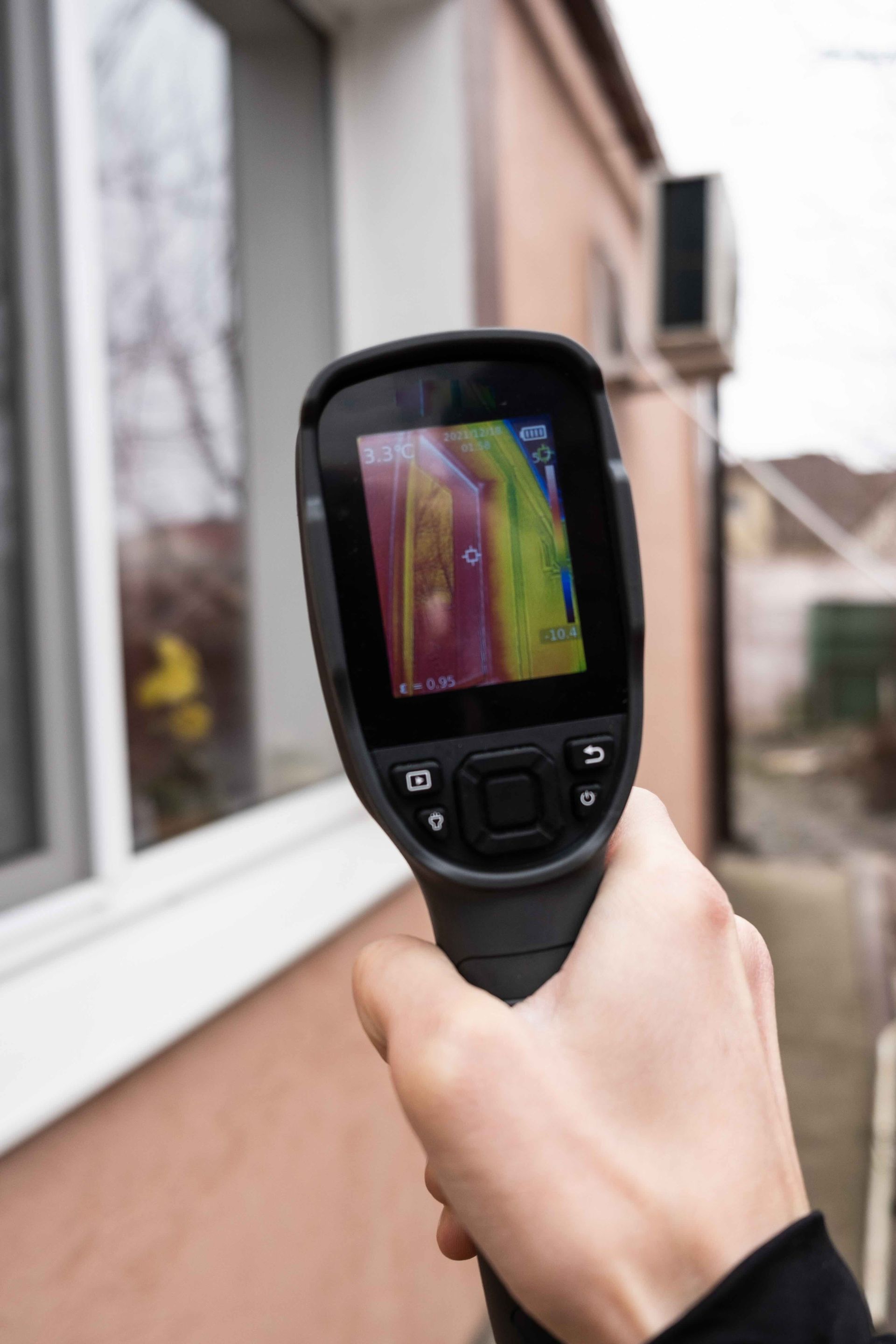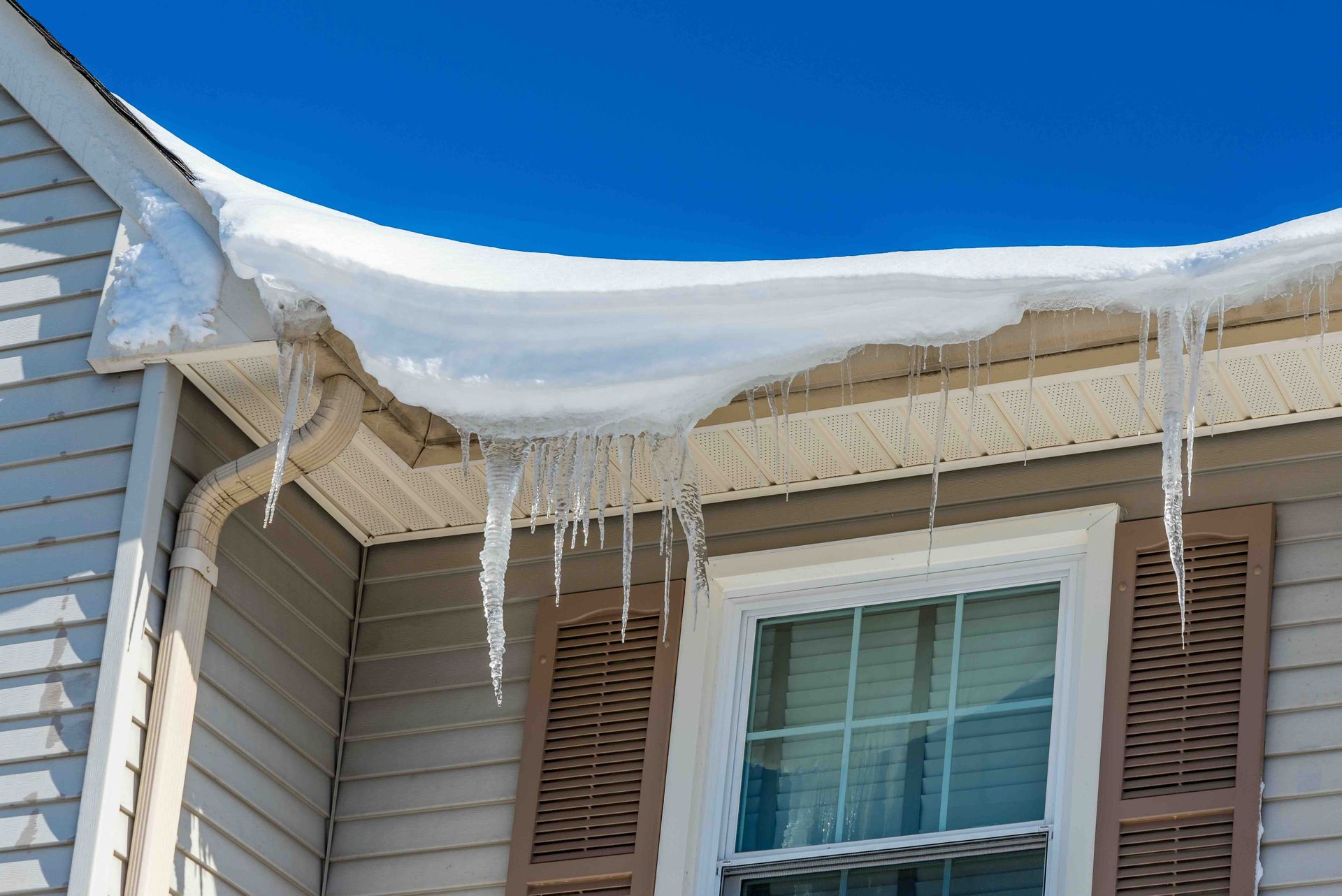What is the importance of home inspections in the Grand Rapids real estate market?
The journey to buying your first home in Grand Rapids or your fifth home is incredibly exciting! You’re probably picturing cozy evenings, weekend barbecues, and a place to truly call your own. In Grand Rapids, with its charming neighborhoods, vibrant downtown, and beautiful natural surroundings, finding that perfect home feels even more special. But amidst all the excitement, there's one crucial step that often gets overlooked or downplayed: the home inspection.
Real estate doesn’t have to be complicated. With Cornerstone Home Group, you get expert guidance and a dedication to "Serving All Your Real Estate Needs" every step of the way. Whether you’re looking to buy, sell, or invest, we’re here to help. Contact us today at
616.341.7231 or via
our website contact form to start the conversation!
Your Grand Rapids Dream Home is Calling
You’ve likely spent hours browsing online listings, admiring the beautifully staged photos of homes in East Grand Rapids, Heritage Hill, or Alger Heights. You’ve envisioned yourself in the spacious kitchen, the sun-drenched living room, and the manicured backyard. It’s easy to get swept away by the aesthetics, but remember, what you see in pictures and during a quick walkthrough is only the surface.
A home, especially an older one common in many established Grand Rapids neighborhoods, has a complex network of systems hidden behind those walls. Plumbing, electrical, HVAC, foundation, roofing – these are the silent workhorses that make a house a functional home. And just like any other system, they can wear down, break, or have hidden issues that aren't immediately obvious to the untrained eye.
What Exactly is a Home Inspection?
Simply put, a home inspection is a thorough, non-invasive visual examination of the physical structure and systems of a house. It’s performed by a qualified, professional home inspector who acts as your unbiased expert. They aren't there to tell you whether or not to buy the house, but rather to provide you with a comprehensive report on its condition.
In Grand Rapids, a good home inspector will be familiar with the types of homes common in the area, including their age, construction methods, and potential issues specific to the climate and local building codes. They will look at everything from the roof to the foundation, and all the major components in between.
Why is a Home Inspection Non-Negotiable for First-Time Buyers?
Let’s dive into the specific reasons why skipping a home inspection in the Grand Rapids market would be a significant mistake for you as a first-time home buyer.
1. Uncovering Hidden Problems (and Saving You a Fortune)
This is arguably the most critical reason. Imagine buying your dream home, only to discover a few months later that the furnace is on its last legs, the roof is leaking, or there’s significant water damage in the basement. These are not minor repairs; they can cost thousands, even tens of thousands of dollars to fix.
A home inspector has the expertise and specialized tools to identify issues that you, as a first-time buyer, might never notice. They can spot subtle signs of water intrusion, potential electrical hazards, or structural concerns that could become major headaches (and expenses) down the line. Finding these issues before you close on the house gives you leverage.
2. Empowering Your Negotiation
Once the inspection report is in your hands, you have valuable information. If significant issues are found, you have several options:
- Ask the seller to make repairs: This is often the most straightforward approach.
- Negotiate a credit: You could ask for a price reduction or a credit at closing to cover the cost of the repairs.
- Walk away:
In some cases, if the issues are too severe or the seller is unwilling to negotiate, the inspection contingency in your purchase agreement allows you to walk away from the deal without losing your earnest money.
Without an inspection, you’re buying the house "as-is," with little to no recourse if problems arise after the sale. In a competitive market like Grand Rapids, sellers might be hesitant to offer concessions, but a detailed inspection report provides concrete evidence to support your requests.
3. Understanding Your New Home’s Needs
Even if no major "deal-breaker" issues are found, a home inspection is an incredible educational tool. The inspector will point out areas that require ongoing maintenance or that might need attention soon. This could include:
- Aging appliances: The water heater might be old but functional, signaling it could need replacement in a few years.
- Minor wear and tear:
Loose gutters, cracked caulk around windows, or worn-out siding might not be emergencies, but they are good to know for future planning.
- Energy efficiency concerns: Drafty windows or insufficient insulation can lead to higher utility bills, which the inspector might note.
This information helps you budget for future expenses and understand the general upkeep requirements of your new Grand Rapids home. It’s like getting a maintenance manual for your house!
4. Budgeting for the Future
Knowing about potential repairs or maintenance needs upfront allows you to factor these costs into your overall budget. Many first-time homebuyers focus solely on the mortgage payment, property taxes, and insurance. However, homeownership comes with ongoing maintenance costs. An inspection helps you anticipate these and avoid being blindsided by unexpected expenses shortly after moving in.
5. Peace of Mind
This benefit is often underestimated. Buying a home is a huge financial and emotional commitment. Knowing that a professional has thoroughly examined the property and provided you with a detailed report can alleviate a significant amount of anxiety. You’ll move into your Grand Rapids home with confidence, knowing what to expect and that you've made an informed decision.

What Does a Home Inspector Look At?
While the specifics can vary slightly depending on the inspector and the property, a typical home inspection in Grand Rapids will cover:
- Structural Components: Foundation, crawl space, basement, walls, ceilings, floors, roof structure.
- Exterior: Siding, trim, windows, doors, decks, porches, walkways, driveways, grading, drainage.
- Roofing: Shingles, flashing, gutters, downspouts, chimneys, skylights.
- Plumbing System: Water supply and distribution pipes, drains, vents, waste systems, water heater, fixtures (sinks, toilets, showers).
- Electrical System: Service entrance, main panel, breakers, wiring, outlets, switches, light fixtures.
- Heating, Ventilation, and Air Conditioning (HVAC) Systems: Furnaces, air conditioners, heat pumps, ductwork, thermostats.
- Interior: Walls, ceilings, floors, doors, windows, fireplaces, stairs, railings, kitchen appliances (if built-in).
- Insulation and Ventilation: Attic, crawl space, wall insulation.
- Attached Garages: Garage door operation, fire separation.
The inspector will typically provide a detailed report, often with photos, explaining their findings. They will highlight deficiencies, safety hazards, and areas that require future maintenance.
Choosing the Right Home Inspector in Grand Rapids
Just like you’d research your real estate agent, it’s crucial to select a qualified and reputable home inspector. Here are some tips for first-time buyers in Grand Rapids:
- Get Referrals: Ask your real estate agent, friends, or family for recommendations.
- Check Credentials: Look for inspectors who are certified by reputable organizations like the American Society of Home Inspectors (ASHI) or the International Association of Certified Home Inspectors (InterNACHI). These certifications indicate adherence to professional standards and ongoing education.
- Experience Matters: An inspector with experience in the Grand Rapids area will be more familiar with local building styles, common issues, and climate-specific considerations.
- Review Sample Reports: Ask to see a sample inspection report to understand the level of detail you can expect.
- Read Reviews: Check online reviews and testimonials from past clients.
- Ask About Insurance: Ensure the inspector carries professional liability (E&O) and general liability insurance.
- Accompany the Inspector: If possible, try to be present during the inspection. This is a fantastic learning opportunity, and you can ask questions directly.
The Inspection Contingency: Your Safety Net
Your purchase agreement should always include an "inspection contingency." This is a clause that makes your offer to buy the home conditional upon a satisfactory home inspection. It typically specifies a timeframe (e.g., 7-10 days) during which you must complete the inspection and either accept the property's condition, negotiate repairs, or, if necessary, withdraw your offer.
Do not waive the inspection contingency, especially as a first-time homebuyer. In a hot market, some buyers might be tempted to do this to make their offer more attractive. This is a massive risk that can lead to significant financial regret down the road. Your earnest money, which is a deposit made to show your serious intent to buy, is protected by this contingency. Without it, you could lose that money if you back out due to hidden issues.
After the Inspection: What Happens Next?
Once you receive the inspection report, you'll sit down with your real estate agent to review it thoroughly. Based on the findings, you’ll decide on your next steps.
- Minor Issues: For small, cosmetic issues or minor wear and tear, you might choose to accept the house as-is.
- Moderate Issues: For more significant but manageable problems (e.g., a faulty water heater, minor electrical issues), you might negotiate with the seller for repairs or a credit.
- Major Issues: If the inspection uncovers major structural problems, a failing roof, or extensive water damage, you’ll need to weigh the costs and risks. This is where your agent’s expertise in negotiation becomes invaluable.
Your agent will help you draft a request for repairs or credits, often called an "inspection response" or "amendment." The seller then has the option to agree, counteroffer, or decline. This negotiation process is a critical part of the home-buying journey.
The Bottom Line for Grand Rapids First-Time Homebuyers
Buying your first home in Grand Rapids is an exciting milestone, and you deserve to embark on this new chapter with confidence. Don't let the allure of a beautiful facade or the pressure of a competitive market overshadow the fundamental importance of a home inspection.
It's not about finding a perfect house; no house is perfect. It's about being informed, understanding the true condition of your potential home, and protecting your financial future. A thorough home inspection is an indispensable tool that empowers you, the first-time homebuyer, to make the smartest, most informed decision possible. It's an investment in peace of mind, and one that will undoubtedly pay dividends as you settle into your wonderful new home in Grand Rapids.
Share on





